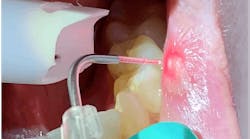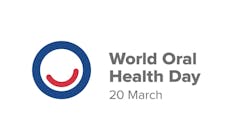What dentists have to say about how they plan to retire: survey results
The results of the SurePayroll Small Business Scorecard survey are optimistic for dentists and their retirement savings plans. Most dentists are saving accordingly, and for those who aren't, there's still time to start.
Retirement is a difficult topic for many people. Do you have the right plan in place? Will you be able to save enough? How much is enough? For those who own their business, like many dentists, retirement can be even more difficult to plan because the owner is responsible for implementing his or her 401k plan. Which raises more questions: How do I manage it? How much will it cost me? What are the right investment options?Dentists ahead of the curve for retirement planning
The good news is that small dental practice owners have thought through these issues a bit more than average small business owners, according the recent SurePayroll Small Business Scorecard survey.
• Almost half (47%) of small dental practices offer a 401k plan.
• Only 34% of general small businesses offer a 401k plan.
Meanwhile, 42% of small business owners said they didn’t see the value in the retirement savings vehicle, compared to just 19% of dental practice owners who said the same. The main reason half of dental practice owners do not offer a plan is because the fees are too expensive. One small group cited not knowing how to manage the plan.
RELATED ARTICLES:
The dos and don'ts of retirement planning
Convert your 401(k) plan into a real retirement plan
For more dentists, these 2 challenges stand out
Other important benefits
In the survey, dentists named other benefits they feel are important to offer employees, aside from the 401k. The most common one mentioned was paid time off, with 79% saying it’s an important benefit. More than half (55%) said professional development and training is important, 49% said job flexibility, 44% said health care, and 19% said alternative savings accounts, such as health savings and flexible spending. The main reason dentists offer benefits is to increase employee retention.
Personal retirement plan
More than one third (38%) of dentists said the 401k is their primary method of saving for retirement. Thirty percent said their primary method of saving is from their business earnings, 9% said a Roth or traditional IRA, 8% said stocks and bonds outside of a retirement account, and 5% said real estate.
Somewhat alarmingly, 8% said they do not have a plan for retirement. This was lower than the average small business owner, where only 5% said they did not have a plan.
Conclusion
While financial experts advise it’s never too early to start saving for retirement, it’s also never too late. Dentists who haven’t developed a plan yet are hopefully still in a position to start. It’s good to know that on average, when measured against other businesses of similar size, dental practices are already on the right track.







